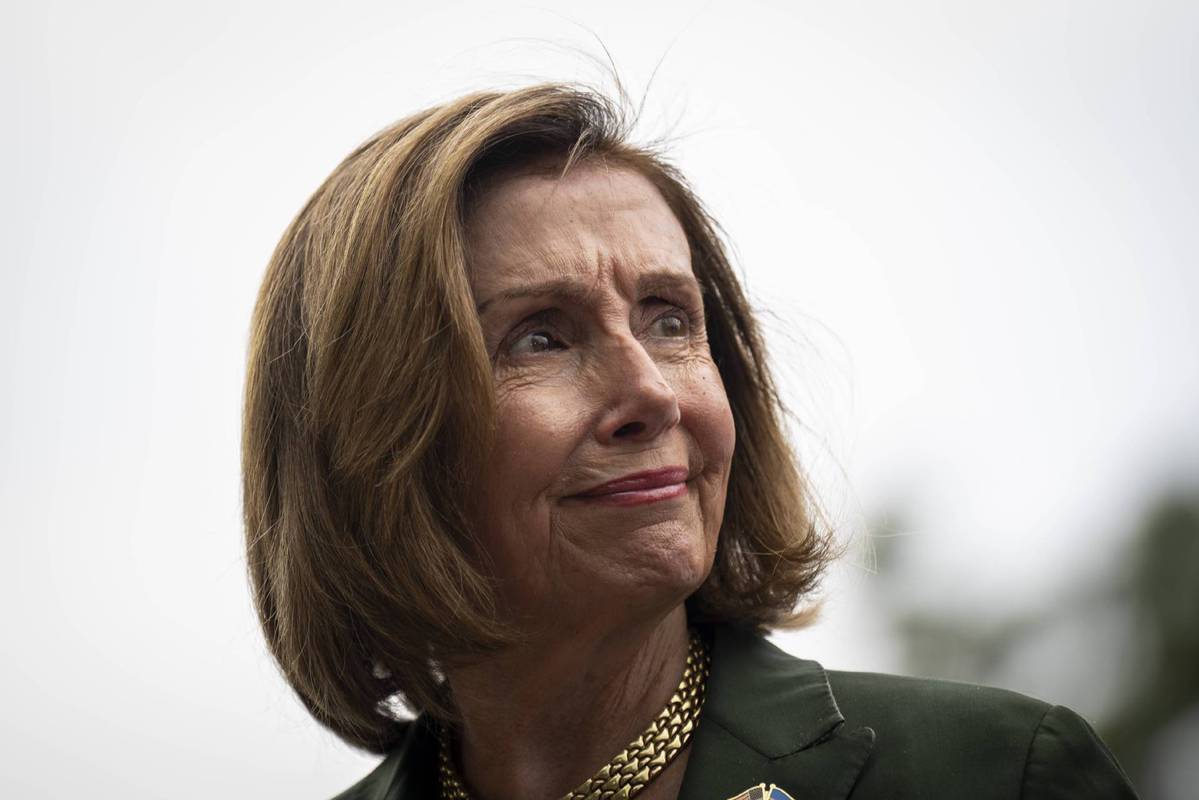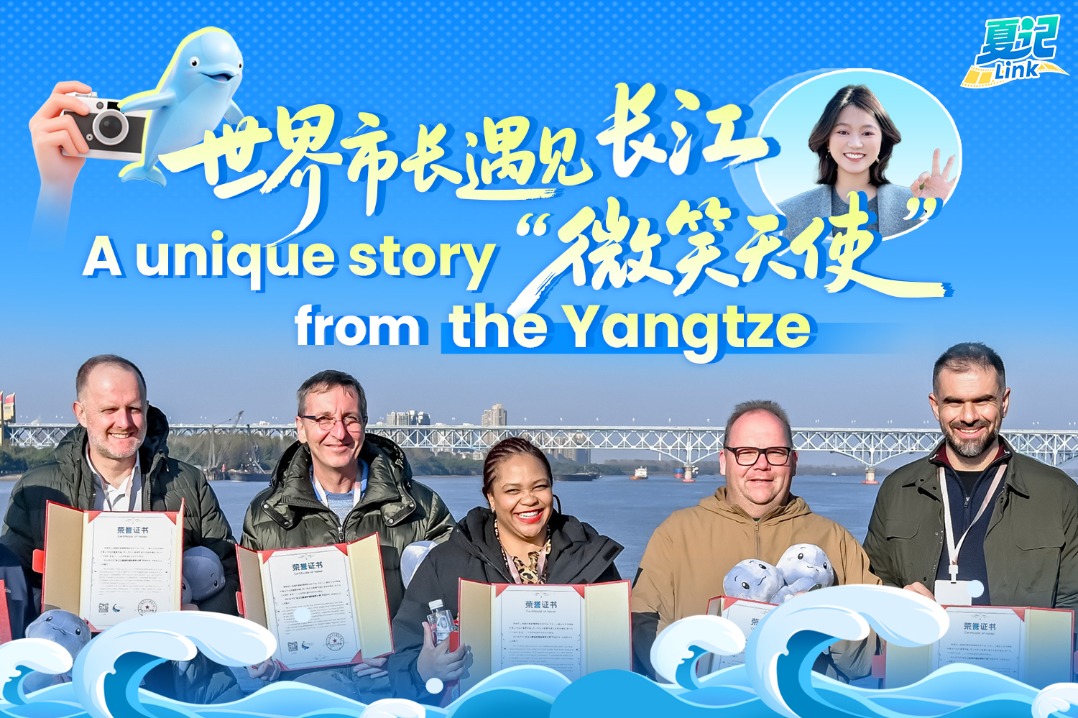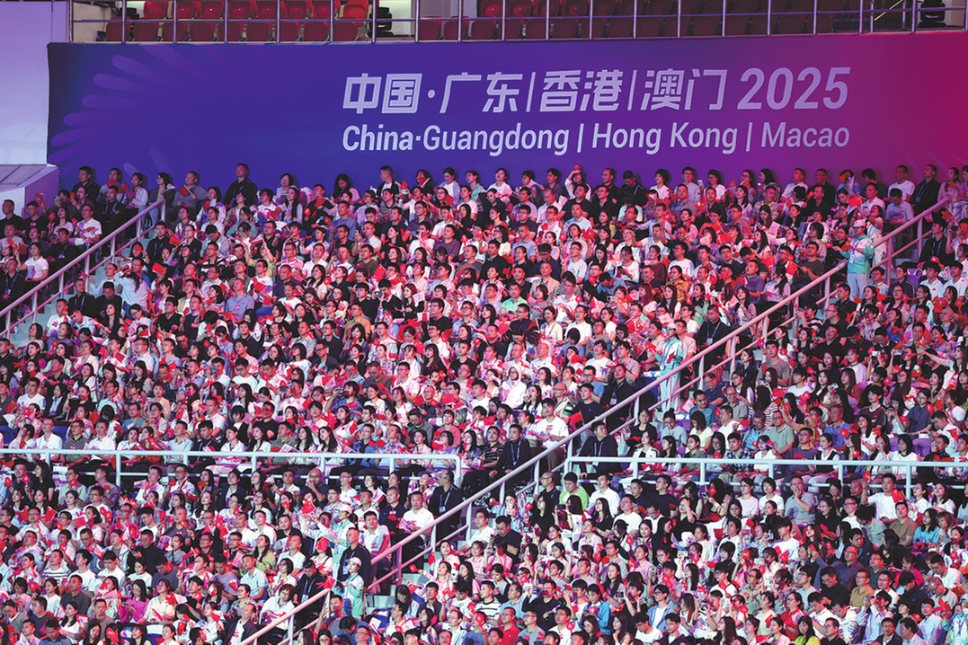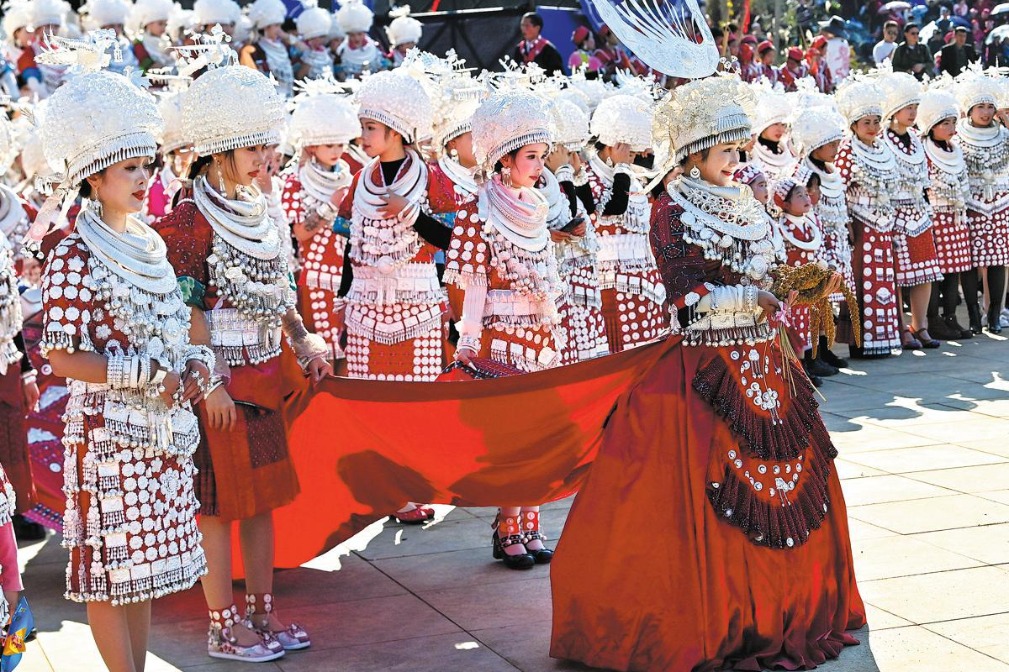Pelosi's talk of trip to Taiwan draws criticism
By HENG WEILI in New York | chinadaily.com.cn | Updated: 2022-08-01 10:07

Political observers around the world consider a potential visit to Taiwan by US House Speaker Nancy Pelosi to be a provocation of China.
The California Democrat kicked off her controversial tour of Asian nations on Sunday, although a stop in Taiwan was not listed on the official agenda.
Pelosi said in a statement Sunday that she is leading a US congressional delegation to Singapore, Malaysia, South Korea and Japan to discuss trade, the COVID-19 pandemic, climate change, security and "democratic governance".
Edward Luce, the US national editor for the Financial Times of London, wrote on July 22 that Pelosi "is second in succession to the US presidency and belongs to the same party as the president. Protestations of US constitutional niceties — that Congress is separate to the executive — ring hollow in this context.
"Pelosi may think she is acting on principle. She is in fact exhibiting the exorbitant irresponsibility of the US legislator — power without responsibility; the self-indulgence of a figure whose job it has never been to pick up the geopolitical pieces," Luce wrote.
In a July 22 piece on substack.com, Daniel Larison wrote: "China hawks keep saying that US officials should be able to go wherever they please, but on this issue that rule makes little sense. Top US officials typically don't go to Taiwan precisely because it antagonizes the Chinese government to no purpose.
"What is gained if the speaker visits Taiwan only to worsen bilateral tensions and sabotage any possibility of US-Chinese cooperation on other issues?" wrote Larison, a PhD in history from the University of Chicago and a contributing editor at antiwar.com.
"The US can ill afford to provoke a crisis with another major power, and Biden needs to shut this proposed visit down before it turns into something truly dangerous," Larison wrote.
In another July 22 piece, for the Responsible Statecraft website, Larison wrote: "Managing US-Chinese relations is one of the most important foreign policy tasks that our government has, and it is damaging for both countries and for the region when the relationship is managed in such a confused and slapdash way."
China firmly opposes separatist moves toward "Taiwan independence" and interference by external forces and never allows any room for "Taiwan independence" forces in whatever form, President Xi Jinping told US President Joe Biden in their phone call on Thursday.
In a July 20 post on Twitter, Michael Swaine, the director of the East Asia Program at the Quincy Institute for Responsible Statecraft, said: "Pelosi visiting Taiwan is such a bad idea it's hard to know where to begin in criticizing it. She is a senior member of the United States government. There is no upside to such a visit and only downsides. Biden shld oppose this but he dares not, eh?"
Tom Watkins, president and CEO of TDW and Associates, a business and education consultant in the US and China, told China Daily that Pelosi's proposed trip to Taiwan "poses major risks. This is one time she should listen to the US military.
"In life, timing is everything, and given the tensions between our two great nations, this visit is viewed by Beijing as a strategic-level provocation," he said.
Watkins said that China and the US "are at a precipice. It is imperative we both take a step back and find ways of maintaining an open dialogue, not ratcheting up tensions (but) focusing on the "6 C's" — communications, collaboration, cooperation, coordination and competition — avoiding unnecessary confrontations while finding ways in which both of nations maintain success versus a one-sided victory.
"Together, both nations and the world face existential threats of climate change, pandemics, poverty, hunger, inequality and the potential of an economic tsunami unleashed on us all," Watkins said.
Shelley Rigger, a political science professor at Davidson College and a leading expert on Taiwan, in a July 28 article on Responsible Statecraft said: "What they're (Chinese officials) seeing is that the US is sending the number three in their national hierarchy to Taiwan. How is this not a statement or an affirmation of Taiwan statehood?
"Politicians don't appreciate the gravity and the risk of messing around in this policy area," she said.
"The context for a Pelosi visit in 2022 is radically different," Asian security expert Van Jackson said in the same article. "We've replaced a posture of détente with rivalry."
Danny Haiphong, a journalist at Black Agenda Report, wrote on Twitter: "China cherishes sovereignty and won't be pushed around. Pelosi is making a reckless miscalculation that is nothing short of warmongering."
Journalist Rania Khalek of BreakthroughNews tweeted on July 26: "Seriously, why is she doing this?? Is this what she thinks Americans want?? Not healthcare, not a living wage, not reproductive rights, but to provoke a war with China over Taiwan?"
Biden told reporters on July 27 that the US Defense Department believes that the visit is "not a good idea right now".
In 1979, the United States switched diplomatic recognition from Taipei to Beijing but keeps informal relations with the island.
Under Beijing's one-China principal, Taiwan is an integral part of China.
"None of us has ever said we're for independence when it comes to Taiwan," Pelosi has said.
National Security Council spokesman John Kirby said on Friday of Pelosi's trip: "There's no reason for it to come to that, to come to blows. There's no reason for that because there's been no change in American policy with respect to one China."
Pelosi said her delegation for the trip to Asia includes Democratic Party US representatives Gregory Meeks of New York, Mark Takano of California, Suzan DelBene of Washington state, Raja Krishnamoorthi of Illinois, and Andy Kim of New Jersey.
Pelosi would be the highest-ranking elected US official to visit Taiwan since then-House Speaker Newt Gingrich did in 1997, although China's heft on the world stage is much more prominent now than it was then.
"The Air Force's multi-type fighter jets fly around the treasured island of the motherland, tempering and enhancing the ability to maintain national sovereignty and territorial integrity," People's Liberation Army Air Force spokesman Colonel Shen Jinke said Sunday in Changchun, Jilin province, in reference to Taiwan.
Su Qiang in New York contributed to this story.
























